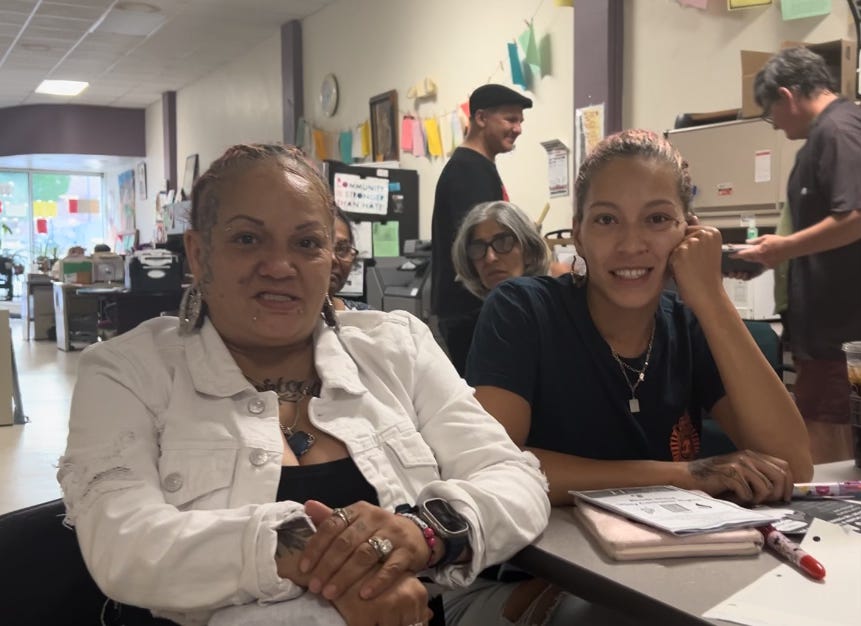On June 25, Governor McKey signed an act directing the Public Utilities Commission (PUC) to amend its regulations by extending the utility termination moratorium period on electricity, gas, and water from April 15 to May 1 each year. Previously, the moratorium period ran annually from November 1 until April 15.
This is what the Center for Justice wrote in 2020:
The Center, in its Public Comment, argued that Rhode Island’s experience with coronavirus has underscored how profoundly our state needs to implement a Percentage of Income Payment Plan (PIPP) that can generate a sustainably payable bill for utility customers and more predictable payments for the utility. The experience in this pandemic has underscored the importance of utility payments that are adjusted when people lose their jobs and suffer a loss of income, for example, during and through public health emergencies, economic and environmental crises, and other shocks we are likely to face with potentially more frequency in the coming years.
That was four years ago! And just yesterday, the George Wiley Center sent out an email once again repeating the same message
Until we have a Percentage Income Payment Plan, rates will continue to be unfair and disproportionately charge low-income households, who pay a higher percentage toward basic utility services. Until we have stronger protections for medically vulnerable utility consumers, people with medical conditions will unnecessarily face difficult barriers to gaining protections.
You can help build movements for energy and disability justice by sharing this post on your social media. Please share on Instagram, Facebook, and TikTok.
Instagram: instagram.com/georgewileycenter
Facebook: facebook.com/georgewileycenter
The moratorium extension act signed by the Governor McKey is a step in the right direction, but, nonetheless, the whole approach is fundamentally flawed. The moratorium period, covering the winter months, implies that the problem of utility shut-off is life-threatening only during the winter months. This overlooks the fact that heat exhaustion kills more people than freezing temperatures. As the climate catastrophe unfolds, this will become an increasingly significant problem, as has been known for years.
The following charts are from the 2018 Fourth National Climate Assessment.. They highlight the expected relationship between excess heat and emergency room visits in Rhode Island. That’s scientific jargon for saying: “The number of emergency room visits will go through the roof. People will die.”
This figure shows observed and projected impacts of excess heat on emergency room visits in Rhode Island via three graphs. On the left, maximum daily temperatures in the summer have trended upwards over the last 60 years. In the center, data shows that heat-related ER visits rose sharply as maximum daily temperatures climbed above 80°F. On the right, with continued climate change, Rhode Islanders could experience an additional 400 (6.8% more) heat-related ER visits each year by 2050 and up to an additional 1,500 (24.4% more) such visits each year by 2095 under the higher scenario (RCP8.5).
In spite of the dire forecast for the expected heat this summer, Rhode Island's government persists in its studied ignorance of the poor as it caters to the rich.
Debt forgiveness is the solution
Maybe even more fundamental than ignoring the problem of death by heat exhaustion, is the obvious fact that debts that cannot be repaid won’t be repaid. Michael Hudson wrote a book on the history of the subject …and forgive them their debts. As Hudson put it:
For thousands of years, rulers in the Near East from Babylonia to the Levant recognized that for society to survive, they needed to help their indebted citizens recover their financial solvency.
Those who like theological support for their political views will enjoy the following Jubilee footnote in David Graeber’s Debt: The First 5,000 Years:
“Every seventh year you shall make a cancellation. The cancellation shall be as follows: every creditor is to release the debts that he has owing to him by his neighbor” (Deuteronomy 15:1–3). Those held in debt bondage were also freed. Every 49 (or in some readings 50) years came the Jubilee, when all family land was to be returned to its original owners, and even family members who had been sold as slaves set free (Leviticus 25:9).
For the religiously inclined, there is also this panel discussion Empire and Economics: The Long History of Debt-Cancelation from Antiquity to Today, moderated by Shailly Gupta Barnes and the Kairos Center for Religions, Rights, and Social Justice. The panel features Michael Hudson, New Testament Scholar Dr. Aliou Niang, and Rev. Dr. Liz Theoharis, Biblical Scholar and co-chair of the Poor People’s Campaign: A National Call for Moral Revival.
Of particular relevance to Rhode Island is the following quote from Graeber’s book:
If history shows anything, it is that there’s no better way to justify relations founded on violence, to make such relations seem moral, than by reframing them in the language of debt—above all, because it immediately makes it seem that it’s the victim who’s doing something wrong. Mafiosi understand this.
Meanwhile, rather than addressing fundamental questions such as who owns what and who are the victims of this theft and resulting systemic exploitation, the national conversation invariably focuses on personalities. This focus on individuals allows us to avoid confronting the deeper issues of economic inequality and social injustice.






